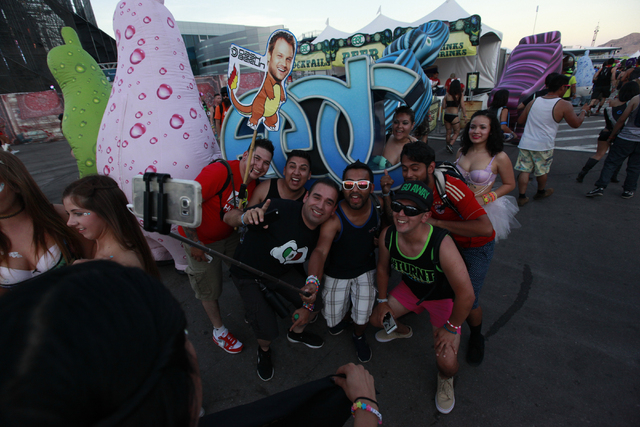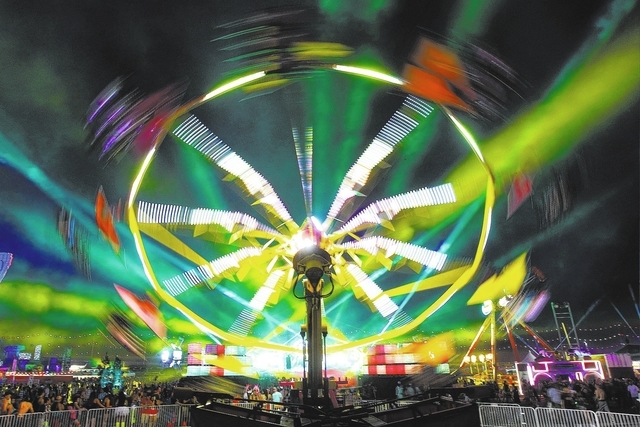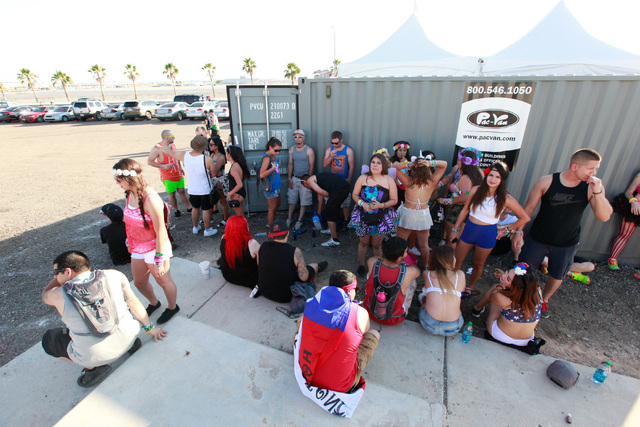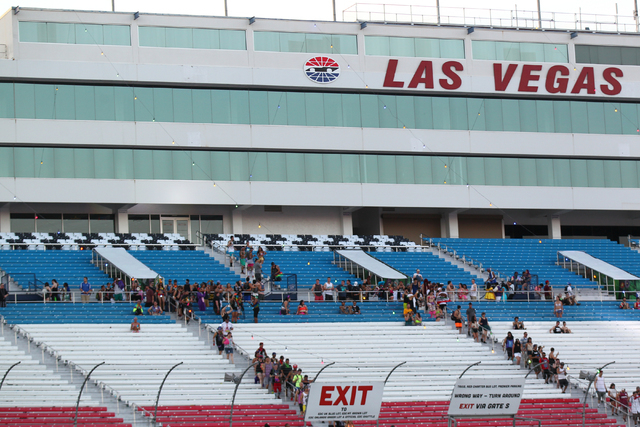Dance music industry takes on drug issue
Drugs and dance music: It’s time to talk.
“It’s a hot-button issue,” said KCRW’s Jason Bentley, introducing a panel, pointedly named just that, at the EDMBiz conference held at The Cosmopolitan in Las Vegas last week. “We didn’t ever want to go near it because of the negative connotations.”
He’s right, of course. Drugs. Dance music. For decades, not many people ever wanted to have this conversation. Everybody knows it was happening, but nobody ever really has wanted to talk about it, certainly not many key figures within the electronic dance music community. If the EDM community has been skittish to address the issue, it’s not without reason.
The passage the Illicit Drug Anti-Proliferation Act in 2003 — known at one time as the RAVE act (Reducing Americans’ Vulnerability to Ecstasy), when it was first introduced by then-U.S. Sen. Joseph Biden, D-Del., brought along some very real and pretty hefty implications for promoters, essentially holding them liable for any illegal substance abuse at their events.
So, understandably, drugs have not exactly been a prime topic for discussion — not at this level, anyhow, and not until now. In the days leading up to this year’s installment of Electric Daisy Carnival at Las Vegas Motor Speedway, Insomniac Events, the promoter that puts together EDC, released a two-minute video dealing directly with the subject.
“For me when I first saw it, it struck really at the heart of the community that we are, as electronic music — unity, togetherness, all the messages throughout are incredibly powerful,” said the panel’s moderator, Mark Lawrence, the Association for Electronic Music’s chief executive. “And it’s that togetherness that I think we now need to tap into, where we look at the challenges we face as a community together. And whilst drugs are, without doubt, a society issue, the time has come for electronic music and the entire family, globally, to start having dialogue and start talking about the issue.”
Indeed, the time has come. Since Electric Daisy Carnival came to Las Vegas in 2011, there have been five drug-related fatalities — and that’s on the heels of the festival’s first death, a 15-year-old girl at the Los Angeles edition of EDC in 2010.
You’ve seen all the headlines. They’ve been inescapable.
At the same time, if you’ve noticed, only one of those tragic incidents occurred on-site, which speaks to the notion that Insomniac has been actively working to address the problem, which as Lawrence astutely pointed out, “It’s not a dance music problem. It’s a society problem.” Even so, it would be remiss to ignore the effect that drugs have had on the dance scene.
And so there they were this past Wednesday, these prominent members of the dance community, alongside respected members of the medical community, seated in an enormous ballroom at the Cosmo having a candid conversation about drugs and the dance scene — openly, honestly and in the midst of the most high-profile dance-music event in the country.
And it wasn’t just execs in on the discussion. Brianna Price, a Canadian DJ, producer and filmmaker known as B. Traits, who recently produced a well-received documentary for BBC called “How Safe Are My Drugs,” was also on the panel, and she spoke with the voice of experience.
Price offered two personal anecdotes of how drugs have affected her life. One involved her boyfriend who consumed drugs contaminated with a cattle deworming agent that sidelined him for months, and one involved a brother who had overdosed on ecstasy and ended up in hospital.
“He’s completely fine now,” she said, “but the fact that something like that happened so close to me, really made me stand up about this issue, and it’s the reason why I’m here today, talking to you guys.”
“Is it time for us to set our own standards?” asks Lawrence, acknowledging that EDC is one of the larger events with the resources to tackle this issue head-on, “and help bring those at the smaller end of events up to the higher end?”
The question isn’t rhetorical, but it certainly could be.
Setting a standard is long overdue, and EDC is leading the way. To wit: Las Vegas Motor Speedway is outfitted with elaborate medical facilities, not just to tend to those imbibing illegal drugs but to provide attendees with the best medical care possible.
Clearly, smaller shows and festivals across the country cannot afford these types of facilities, and they might never have those types of resources. That’s why it’s not as much about infrastructure. It’s not even necessarily about advocating abstinence. It’s about dialogue — frank, direct discussions like the one at EDMBiz. That’s the only way that the stigmas — ones that could possibly be preventing those who need help from seeking it — will begin to be dismantled.
“From the promoter’s perspective, the most heartbreaking thing that happens is when we wake up in the morning probably about three and a half hours after the festival,” said panelist Maren Steiner, Insomniac’s Director of Health &Safety, “and we read about a bad outcome. Then later in the day when I research heavily, everything you can possibly figure out: What happened to this person? What did this person take? What were the circumstances around it? How did this person get to the festival? How did they leave the festival? And what time did all this happen?
“And a lot of times what happens is, you know, they went home with friends, they didn’t feel good — there was something wrong with them — their friends physically carried them to the car, their friends physically carried them to bed, they wrapped them up and said, ‘See you later’ and took off.
“Doctor Dale and I,” she continued, referring to Dr. Dale Carrison, chairman of emergency medicine at University Medical Center, who assists with EDC, “and the entire medical team — and I think I speak for any promoter — it’s heartbreaking because we want to help you. There is no police officer, no paramedic, no physician or no nurse, in America or the world, who doesn’t want to help you.
“And the hardest part is getting folks to speak up and say, ‘Hey, my friend needs help,’ or ‘Hey, I need help,’ or ‘I’m not going to put my friends to bed because there’s a chance they might not wake up in the morning.’ Those people’s friends have to live with that the rest of their lives.
“And should a 19-year-old have to live with the guilt of that for their entire life, and should parents have to bury their children? The answer is no. Never, if it can be avoided. There’s so much of this stuff that can be avoided. If people would just see something and say something.”
Do you feel that? It’s the paradigm shifting.
Read more from Dave Herrera at bestoflasvegas.com. Contact Dave at dherrera@reviewjournal.com.
RELATED
EDC 2015 officially begins — PHOTOS
Here’s the full EDC 2015 Schedule
EDC party-goers warned to keep hydrated on a sizzling Day 2
EDC is an experience like no other
Taking a ride on EDC’s magic bus
DJ Alesso answers questions before EDC




























